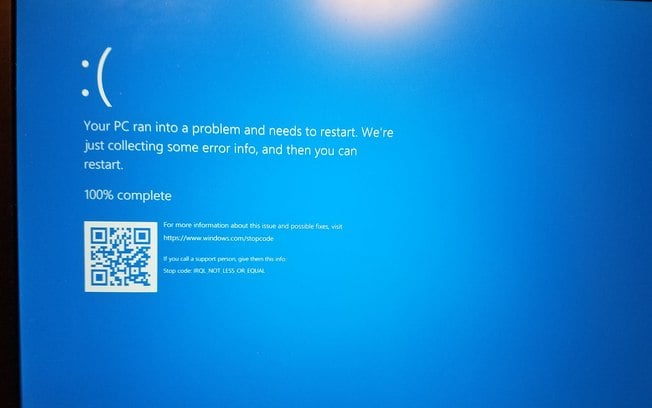The cyber blackout that disrupted the operation of systems around the world on Friday (19) generated impacts only on companies and not on home users’ devices.
This is because Falcon, the cybersecurity platform of the American company CrowdStrike that caused failures after a software update, is only available for the corporate environment.
According to CrowdStrike, more than 29,000 customers use its cybersecurity services, including companies in the retail, healthcare, and financial services sectors.
Falcon monitors almost all activities on the computer it is installed on, however, in this latest update, it has started to cause damage to the Windows operating system.
While it does not directly impact home users, it is essential to remain vigilant against potential scam attempts that exploit CrowdStrike’s flaw as a hook. According to the executive Ayub, cybercriminals often take advantage of high-profile events to create fake websites and send misleading messages, inducing victims to download malicious files.
“There is no generalized action that home users and companies that are not customers of this product should take,” the executive told g1.
“Any guidance in this regard should be observed as suspicious of a scam,” he added.
Solution to the problem
CrowdStrike has offered a workaround for those who have problems. Here’s the step-by-step:
- Boot Windows in Safe Mode or the Windows Recovery Environment
- Navigate to the C:WindowsSystem32driversCrowdStrike directory
- Locate the file corresponding to ‘C-0000029*.sys’ and delete it.
- Boot the host normally.
Microsoft said the underlying cause of a cyber flaw had been resolved, but that it could take some time before systems were fully up and running.
In an interview with the American network NBC, CrowdStrike CEO George Kurtz said that the problem was not caused by a cyberattack. He stressed that a manual repair will be required on the company’s machines and that he “deeply regrets” the worldwide impact caused by the failure to update the software.
What was the impact in Brazil?
Brazilian banks and fintechs had problems in their applications on Friday morning (19) because of the global failure.
On social networks, customers complained about the failures, saying that the applications are down, in addition to not being able to log in and make payments.
The Downdetector website indicates problems in at least four financial institutions: Banco Pan, Bradesco, Neon and Next.
Bradesco confirmed the problem due to the global cyber blackout.
“Teams are working to regularize as soon as possible. The bank’s self-service terminals work normally,” the bank said in a statement.
Also, air operations are on alert due to the blackout.
Azul Linhas Aéreas warned of possible delays. So far, there has been no record of cancellations. The recommendation was for passengers to arrive earlier at the airport, preventing unforeseen events.
Latam announced on Friday morning that some flights may be delayed because of the cyber blackout and asked customers to check the status of the flight in advance.
“We inform our passengers that, after the worldwide outage of Microsoft, our operation may be affected, causing some delays in our flights,” Latam said in its profile on X.
GOL Linhas Aéreas reported that its operations remained stable, with no direct impacts from the blackout.
The Minister of Ports and Airports, Silvio Costa Filho, said that Brazil did not suffer impacts at airports because of the blackout.
Want to stay on top of the main news of the day? Click here and join our WhatsApp channel.


